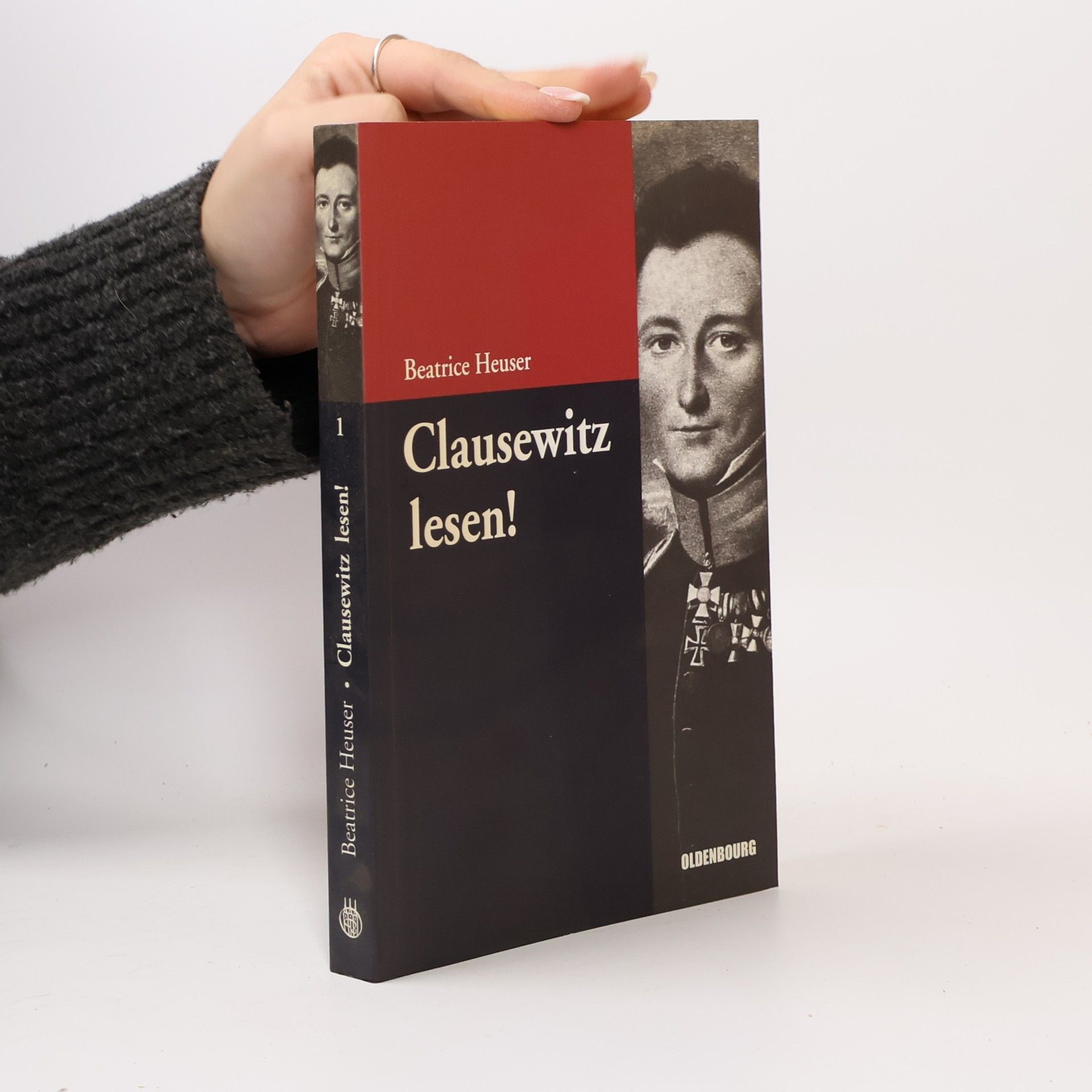Decision-makers often misjudge their adversaries due to a failure to grasp the differing values and beliefs that shape enemy strategies. Through historical examples, including Zelensky's doubts about Russia, Chamberlain's dealings with Hitler, and Israeli intelligence oversights regarding Hamas, Beatrice Heuser illustrates the pitfalls of viewing opponents as rational actors. The book delves into the complexities of strategy-making, highlighting how biases, bureaucratic politics, and conflicting interests can lead to flawed and potentially disastrous decisions.
Beatrice Heuser Libri





Exploring the essence of war, this book delves into the historical evolution of Western concepts and practices related to conflict over the past 2500 years. It provides a comprehensive analysis of how perceptions and methodologies surrounding warfare have transformed, offering insights into the philosophical and practical implications of war throughout history.
Eine umfassende Geschichte des strategischen Denkens bis zur Gegenwart, verfasst von einer Expertin auf diesem Gebiet. Die Definition von Strategie hat sich im Laufe der Geschichte erheblich gewandelt. Heute wird Strategie nicht mehr nur als Kunst des Feldherrn betrachtet, sondern ist vielmehr von gesellschaftlichen Institutionen, Normen und Verhaltensmustern geprägt, insbesondere durch die Politik und Kultur. Die Autorin folgt dem modernen Konsens, dass Strategie den Einsatz aller verfügbaren Mittel, insbesondere der Streitkräfte, zu politischen Zwecken umfasst, um dem Gegner die eigene Politik aufzuzwingen. In einer souveränen Analyse entfaltet sie die westlichen Ideen zum Großen Krieg, beginnend mit klassischen antiken Autoren wie Vegetius. Sie verfolgt die Entwicklung der Kriegführung über die Jahrhunderte, unabhängig davon, ob die Verfasser den Begriff 'Strategie' verwendeten, der nach der Antike erst um 1800 wieder populär wurde. Die Untersuchung umfasst eine Vielzahl von Autoren und Werken aus Frankreich, Spanien, Italien, Deutschland, England, den USA und Russland bis hin zu aktuellen angelsächsischen Theorien, die heute das Feld dominieren.
Rebellen - Partisanen - Guerilleros
Asymmetrische Kriege von der Antike bis heute
- 307pagine
- 11 ore di lettura
Wenn es um Afghanistan oder den Irak geht, ist oft die Rede von den »neuen Kriegen«. Asymmetrische Kriege zwischen Aufständischen und regulären Streitkräften gibt es jedoch seit der Antike, lange bevor der Begriff »Guerilla« geprägt wurde. Beatrice Heuser schildert diese Geschichte sachkundig und frei von Romantisierungen. Die Autorin zeigt, dass solche »kleinen« Kriege alten Mustern folgen und oft Teil »großer« Kriege sind. Sie erklärt, wie die Strategen beider Seiten - der schwächeren und der stärkeren Partei - empfohlen haben, asymmetrische Konflikte auszufechten. Die Leser erfahren, welche Rolle die Zivilbevölkerung in diesen Überlegungen spielt, welche Mittel angewandt wurden und ob sie erfolgreich waren. Aber auch die moralischen Dilemmata, die sich in solchen Einsätzen stellen, werden diskutiert.
Der amerikanische Stratege Bernard Brodie nannte Clausewitz' „Vom Kriege“ nicht nur das größte, sondern das einzige wirklich große Buch über den Krieg. Für Engels war Clausewitz ein Stern erster Ordnung, Marx und Mao haben ihn ein Genie genannt. Trotz dieser rühmenden Worte ist die Zahl der Menschen, die sein Buch gelesen haben, sehr viel geringer als die derjenigen, die es im Munde führen. Beatrice Heuser bietet daher zum einen eine Einführung in die Lektüre des Textes, die viele seiner Widersprüche auflöst und seine Komplexizität leichter verständlich macht. Zum anderen zeigt Heuser auf, wie viel Clausewitz mit anderen Strategen seiner Zeit gemein hat und wie viele Ideen, die ihm allein zugeschrieben werden, schon älteren Ursprungs sind, jedoch auch in wieweit er einzigartig über sie alle hinausgewachsen ist. Deutlich wird außerdem, wie über fast zwei Jahrhunderte hinweg Strategen aller Herren Länder Clausewitz' Lehren ausgelegt und angewandt haben. War also wirklich Clausewitz der erste als er darauf hinwies, dass der Krieg ein Instrument der Politik sei? War er wirklich der Mahdi der Masse und des Massakers, als den ihn die Kritiker des Ersten Weltkriegs ansahen, und hat er den „totalen Krieg“ erfunden? Alle diese Fragen zum großen Klassiker der Kriegskunst werden hier klar und verständlich aufgenommen und beantwortet - gewinnbringend für den Laien und für den Fachmann.